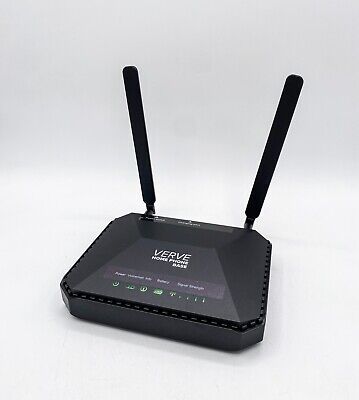For many households, traditional cable internet is the go-to option for staying connected. However, with rising costs and installation hassles, exploring alternative options like Consumer Cellular Home Internet Plans is becoming increasingly attractive. This article delves into the details of Consumer Cellular’s home internet offerings, helping you decide if they might be the right fit for your needs.
What is Consumer Cellular Home Internet?
Consumer Cellular, known for its affordable and user-friendly mobile phone plans, has ventured into the home internet market. They offer fixed wireless internet access, utilizing cellular networks to deliver internet connectivity to your home. This eliminates the need for cable or fiber optic lines to be installed, making it a potentially quicker and more accessible option.

How Does Consumer Cellular Home Internet Work?
Consumer Cellular’s home internet service relies on cellular towers to transmit internet data. A small device, typically called a hotspot, is installed in your home and receives the cellular signal. This hotspot then broadcasts a Wi-Fi network that your devices, like laptops, tablets, and smart TVs, can connect to for internet access.
Benefits of Consumer Cellular Home Internet Plans
- Affordability: Consumer Cellular is known for its competitive pricing. Their home internet plans are typically more affordable than traditional cable internet, especially with introductory offers or multi-line discounts (if you bundle with their mobile phone service).
- Easy Setup: Unlike traditional internet providers that require technicians and cable installations, setting up Consumer Cellular home internet is generally straightforward. The hotspot device is self-installable, and Consumer Cellular provides clear instructions and support to get you online quickly.
- Flexibility: Consumer Cellular home internet plans often don’t require long-term contracts, offering flexibility for those who may not need internet for an extended period. This can be ideal for renters, students, or those with temporary living arrangements.
- Portability (Limited): While not truly portable like a mobile hotspot, the Consumer Cellular home internet device can potentially be moved within your coverage area. This could be useful if you have a second home or want to use it outdoors occasionally (with limitations).
Things to Consider Before Choosing Consumer Cellular Home Internet
- Coverage: Consumer Cellular utilizes existing cellular networks for its home internet service. Therefore, coverage availability is a key factor. Check their website or contact customer service to ensure they offer service in your area.
- Data Caps: Unlike traditional cable internet with unlimited data, Consumer Cellular home internet plans often come with data caps. This means there’s a limit on the amount of data you can use each month. Exceeding the data cap can result in throttling (reduced speeds) or additional charges. Choose a plan with a data allowance that aligns with your typical internet usage.
- Speed: While Consumer Cellular offers high-speed internet access, it may not be as consistently fast as cable or fiber optic connections. Speeds can be impacted by factors like network congestion and distance from the cellular tower. Consider your internet usage needs (e.g., streaming, gaming) to determine if the offered speeds are sufficient.
- Limited Customer Service: Compared to established cable internet providers, Consumer Cellular may have a smaller customer service team. While they are known for good service, wait times may be longer during peak periods.
Consumer Cellular Home Internet Plans: A Breakdown
Consumer Cellular offers a variety of home internet plans to cater to different needs. Here’s a general overview (details and pricing may vary depending on location):
- Basic Plan: This plan offers a lower data allowance, suitable for light internet users like those who primarily check email, browse the web occasionally, and use social media.
- Standard Plan: This plan provides a higher data allowance, ideal for users who stream movies or music occasionally but don’t require heavy internet usage.
- Unlimited Plan (with data prioritization): This plan offers a seemingly unlimited data allowance. However, after exceeding a certain threshold, data speeds may be prioritized for users with lower usage. This plan is suitable for households with multiple devices and heavier internet usage needs, but be aware of potential throttling during peak times.
Is Consumer Cellular Home Internet Right for You?
Consumer Cellular home internet plans can be a compelling option for those seeking an affordable, easy-to-set-up alternative to traditional cable internet. However, it’s crucial to consider your internet usage habits and coverage availability in your area.
- Here are some scenarios where Consumer Cellular Home Internet might be a good fit:
- You’re a budget-conscious user who primarily uses the internet for basic tasks like browsing and social media.
- You live in an apartment or rental property where cable installation isn’t feasible.
- You need a temporary internet solution, such as for a student dorm or a vacation home.
- On the other hand, Consumer Cellular Home Internet might not be ideal for:
- Users who require consistently high speeds for activities like online gaming or video conferencing.
- Households with multiple devices streaming HD content simultaneously.
- Users who frequently exceed data caps and dislike the potential for throttling.
- People who live in rural areas with limited cellular coverage.
Making an Informed Decision: Alternatives to Consider
Before committing to Consumer Cellular Home Internet, consider exploring other internet providers in your area. Here are some alternatives to keep in mind:
- Traditional Cable Internet: While typically more expensive than Consumer Cellular, cable internet offers consistently high speeds and unlimited data (in most plans).
- Fiber Optic Internet: Fiber optic internet is the fastest and most reliable option, but it’s also often the most expensive and may not be available in all areas.
- Satellite Internet: This option provides internet access to remote locations, but speeds can be slow and latency (delay) can be high.
By comparing Consumer Cellular Home Internet plans with other options, considering your internet usage habits, and checking coverage availability, you can make an informed decision about which service best suits your needs.
The Future of Consumer Cellular Home Internet
Consumer Cellular’s foray into the home internet market is a relatively new development. As they expand their network and service offerings, we can expect to see:
- Increased Coverage: Consumer Cellular is likely to expand its coverage area, making their home internet service accessible to more people.
- Improved Speeds: Technological advancements may lead to faster and more consistent internet speeds through cellular networks.
- More Competitive Data Plans: As the market becomes more competitive, Consumer Cellular may offer larger data caps or more flexible data plans.
Overall, Consumer Cellular Home Internet provides a potentially attractive option for budget-conscious users who prioritize affordability and ease of setup. By carefully evaluating your needs and exploring all available options, you can determine if Consumer Cellular is the right fit for keeping your home connected to the world.


